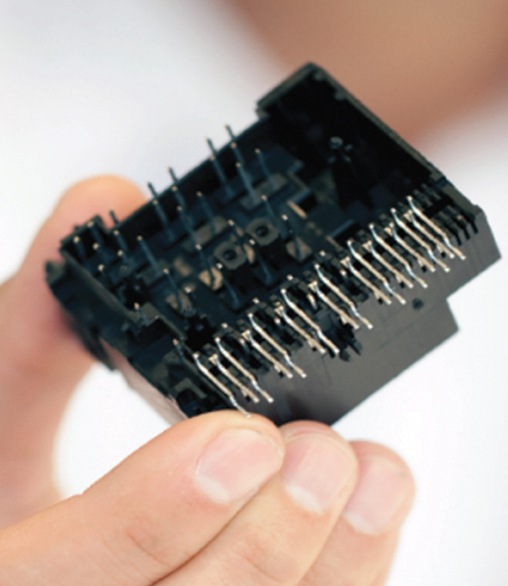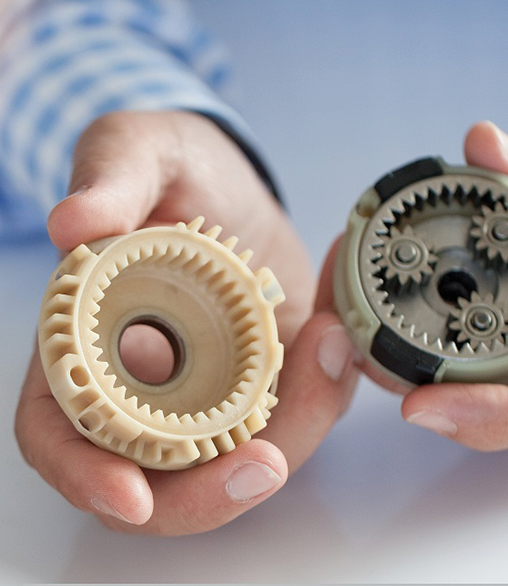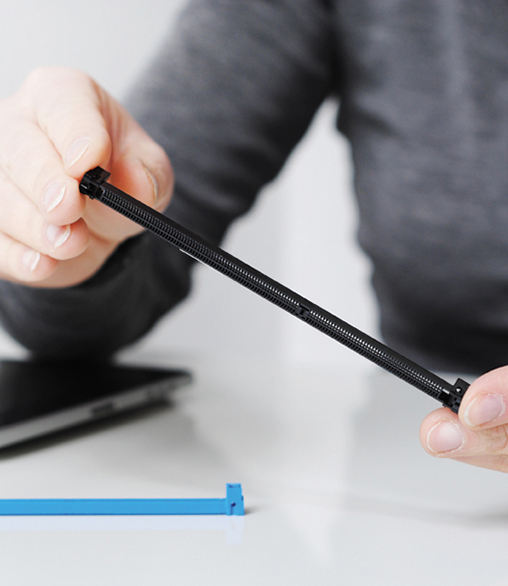Choose Your Language
Request a Quote
Envalior Plastic Distributor
- Home
- Suppliers
- North America
- Envalior

Envalior (a joint venture between DSM Engineering Materials and LANXESS High Performance Materials) is a global leader in developing high-performance materials for various industries, including automotive, electronics, and medical. With over 80 years of experience, DSM and LANXESS have long been trusted partners for their customers. Now, together as Envalior, they continue to provide innovative solutions that help customers achieve their goals.
Envalior's product portfolio includes a wide range of materials—such as engineering plastics, high-temperature plastics, and thermoplastic elastomers—that offer exceptional properties like high strength, durability, heat resistance, and chemical resistance. Envalior also specializes in developing sustainable materials that help reduce environmental impact, including bio-based and recycled plastics. With a strong focus on research and development, Envalior is constantly pushing the boundaries of materials science, creating new solutions that meet the evolving needs of its customers and the market.
|
|
|
|
|
|



Click on a material to learn more.
Akulon® Nylon 6 & 66 has grades suited to all processing techniques, including extrusion, injection and blow molding. For molded parts, they offer an excellent balance of easy design and processing with outstanding mechanical properties over a wide temperature range and in diverse operating environments.
Arnite® A Polyethylene Terephthalate (PET) and Arnite* T Polybutylene Terephthalate (PBT) are well suited for a broad range of automotive, electrical and electronic (E&E) and consumer goods applications. A wide portfolio of Arnite* are available, including unreinforced, reinforced and flame retardant (FR) grades.
Arnitel® is a thermoplastic elastomer (TPE) with high temperature resistance, good processability and excellent elastic behavior. Arnitel belongs to the TPE subcategory of thermoplastic copolyesters (TPC).
ForTii® Polyamides (PPAs) are high-performance semi-aromatic PPAs based on the unique “C4” diamine technology, and offer excellent dimensional stability, compatibility with lead-free reflow soldering, and the highest stiffness and mechanical strength at extreme temperatures.
Stanyl® Nylon 46 are the first high-temperature polyamides and the only aliphatic polyamides in its class. The symmetry of its structure ensures that the polymers fit in the crystal in multiple ways, giving rise to high crystallization speeds and high crystallinity.
Xytron™ Polyphenylene Sulfides (PPSs) offer extreme chemical resistance, dimensional stability, intrinsically flame retardancy, high stiffness up to glass transition point (90 °C), continuous use temperature (CUT) of 240-260 °C, and a melting point of 280 °C.
Durethan® Polyamide 6 & 66 Engineered Thermoplastics (ETPs) are ETPs that range from soft and tough grades to extremely rigid and stiff grades.
Pocan® Engineered Thermoplastics (ETPs) are made from polybutylene terephthalate (PBT), offer a high heat resistance, strength and hardness, as well as excellent slip properties and high abrasion resistance, good resistance to chemicals, low susceptibility to stress cracking and low moisture absorption. Flame retardant, elastomer-modified and food-approved grades are similarly available, as are blends with acrylonitrile styrene acrylate (ASA), polyethylene terephthalate (PET) and polycarbonate (PC).
Pocan® Engineered Thermoplastics (ETPs) are made from polybutylene terephthalate (PBT), offer a high heat resistance, strength and hardness, as well as excellent slip properties and high abrasion resistance, good resistance to chemicals, low susceptibility to stress cracking and low moisture absorption. Flame retardant, elastomer-modified and food-approved grades are similarly available, as are blends with acrylonitrile styrene acrylate (ASA), polyethylene terephthalate (PET) and polycarbonate (PC).
Pocan® Engineered Thermoplastics (ETPs) are made from polybutylene terephthalate (PBT), offer a high heat resistance, strength and hardness, as well as excellent slip properties and high abrasion resistance, good resistance to chemicals, low susceptibility to stress cracking and low moisture absorption. Flame retardant, elastomer-modified and food-approved grades are similarly available, as are blends with acrylonitrile styrene acrylate (ASA), polyethylene terephthalate (PET) and polycarbonate (PC).
Pocan® Engineered Thermoplastics (ETPs) are made from polybutylene terephthalate (PBT), offer a high heat resistance, strength and hardness, as well as excellent slip properties and high abrasion resistance, good resistance to chemicals, low susceptibility to stress cracking and low moisture absorption. Flame retardant, elastomer-modified and food-approved grades are similarly available, as are blends with acrylonitrile styrene acrylate (ASA), polyethylene terephthalate (PET) and polycarbonate (PC).
Nylatron® is a brand of nylon 6/6-based engineering plastics known for their exceptional strength, durability, and self-lubricating properties. Widely used in industrial high P-V (pressure-velocity) applications, Nylatron materials offer high wear resistance and low friction, making them suitable for bearings, gears, and other mechanical components.
Click on a material to learn more.
EcoPaXX® Bio-based Polyamides PA410 has high mechanical properties of typical short chain polyamides, but combines these with lower moisture update and higher chemical resistance more typical of long chain polyamides.